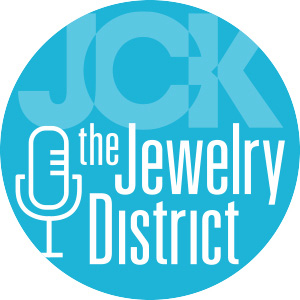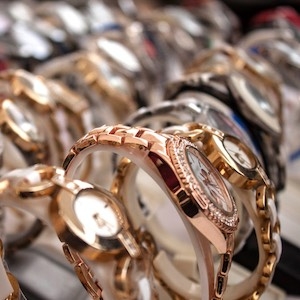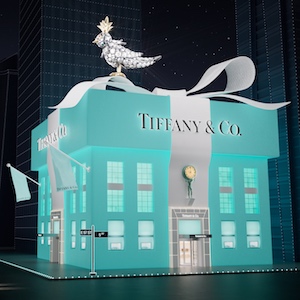
JCK editor-in-chief Victoria Gomelsky and news director Rob Bates discuss Victoria’s recent trip to Sicily to see Jacob & Co.’s new Opera Godfather 50th Anniversary watch commemorating the classic film. Next, Victoria and Rob explore the growing power of brand names in high jewelry, a trend fueling forays into real estate and hospitality. Victoria breaks down how changing legislation may pave the way to more transparency on sourcing and the supply chain. Finally, Rob shares what recent research by the Women’s Jewelry Association and Citizen Watch America revealed about Gen Z—and finds out how well he and Victoria speak Gen Z’s language with a quiz on current slang.
Listen Now
Show Notes:
02:25 Victoria recaps her trip to Sicily to see Jacob & Co.’s Godfather watch
09:40 Rob and Victoria discuss the growing power of high jewelry brand names
10:40 Victoria speculates on the current state and likely future of transparency in the industry
17:50 Rob reports on a recent WJA event sponsored by Citizen Watch focusing on Gen Z
Episode Credits
Hosts: Rob Bates and Victoria Gomelsky
Producer and engineer: Natalie Chomet
Plugs: @jckmagazine, JCK’s e-newsletter
Show Recap
Jacob & Co. Godfather Watch Honors Hollywood History
Victoria describes her visit to Taormina, Sicily, to see Jacob & Co.’s new Opera Godfather 50th Anniversary watch, a limited-series $500,000 collectible timepiece that plays the theme from the Oscar-winning film and features 13 iconic scenes from the movie engraved on the case using laser technology. Highlights of the trip included Godfather trivia and tales recounted by actor Gianni Russo, who played Carlo Rizzi, as well as visits to locations from the film. For Victoria, the experience held special meaning because The Godfather was her father’s favorite movie.
The Growing Power of High Jewelry Brand Names
Rob notes that Jacob & Co. is working with a developer in Dubai to create an ultra-luxe residential tower, with designs inspired by the company’s jewelry. Victoria says this reflects the increasing power of brand names in a market that now comprises 25%–30% branded jewelry. Her recent conversations with CEOs from Bulgari, Pomellato, and Tiffany & Co. suggest that branded jewelers are optimistic about the future, expanding factories and brick-and-mortar stores that elevate the retail experience, such as the soon-to-open Tiffany flagship store.
They are also banking on the trust their names inspire to explore other spheres. Bulgari, for example, is expanding its hospitality footprint with a resort in the Maldives. High jewelry brands see growth potential around the world and in smaller-tier U.S. cities with high concentrations of wealth, like Aspen, Colo., and Boston, where A. Lange & Söhne recently opened a boutique. This supports the theory that the rich are getting richer, Victoria observes.
The Truth About Transparency and Changes on the Horizon
Victoria observes that it’s rare for companies to share real, on-the-record answers to questions about corporate responsibility. She recently wrote a story about transparency in the watch trade for which she called 12 high-end watch makers, including Cartier, Audemars Piguet, Patek Philippe, and Rolex. Some didn’t respond to her questions. Some declined to comment. Others gave off-the-record statements. Only one answered on the record. Victoria suggests that while there is lots of talk about transparency, the industry remains opaque. She predicts this may change as a result of European legislation that will force companies to document their suppliers and routes to market.
Understanding Gen Z
Rob and Victoria trace the focus on transparency to Gen Z, a group that values openness. Rob highlights takeaways from a Women’s Jewelry Association/Citizen Watch event exploring Gen Z’s relationship with jewelry. Their research suggests Gen Zers prefer brands that share their concerns about issues such as climate change and respond well to campaigns that discuss mental health, but are wary of companies trying too hard relate to them and seeming inauthentic.
Rob notes that supporting brands based on ideals is possible only when consumers have choices. He points out that Gen Z supports companies like TikTok, Instagram (Meta), and Amazon regardless of whether those brands share their worldview. He quizzes Victoria on Gen Z slang and concludes that since the youngest Gen Zers are only 10, it’s too soon to predict who they’ll be as adult consumers.
Follow JCK on Instagram: @jckmagazineFollow JCK on Twitter: @jckmagazine
Follow JCK on Facebook: @jckmagazine





